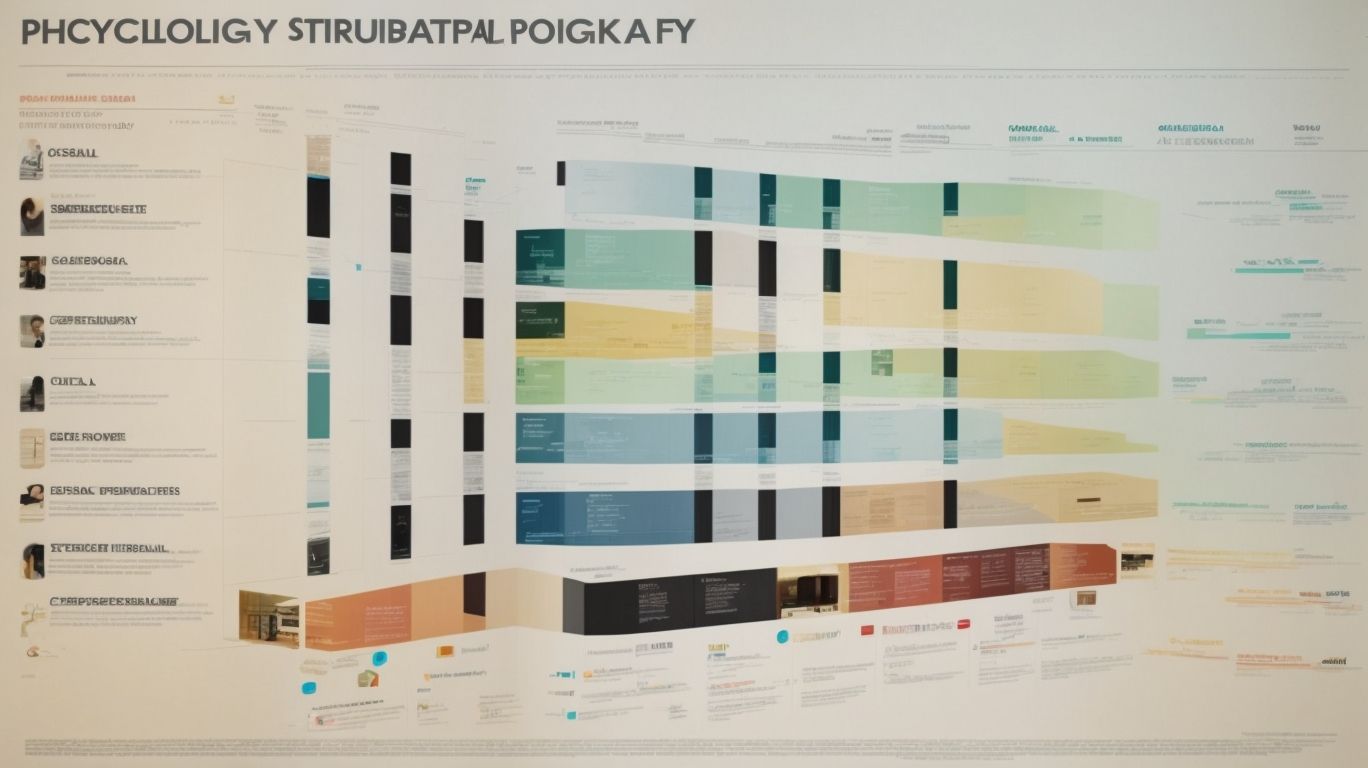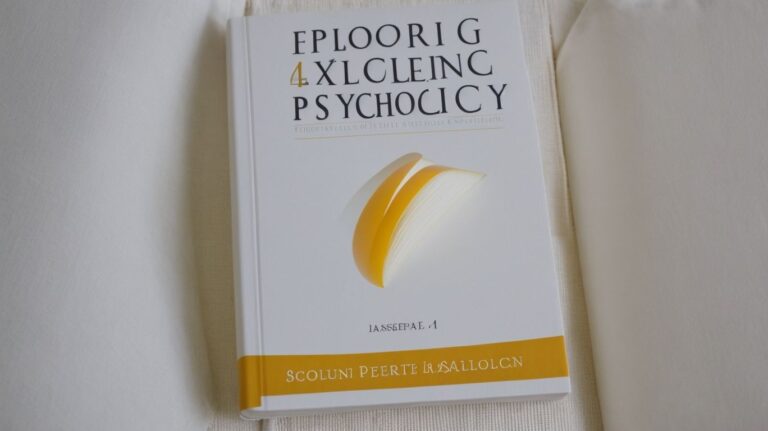Psychology Today is a well-known publication that delves into the complex world of human behavior and mental health. But have you ever wondered who actually owns Psychology Today? In this article, we will explore the history of ownership changes and the current owners of this popular platform. We will discuss the purpose of Psychology Today, how it generates revenue, the benefits of becoming a member, and some of the criticisms it has faced.
Join us as we uncover how Psychology Today has evolved over time and its impact in the field of psychology.
Contents
- 1 What is Psychology Today?
- 2 Who Owns Psychology Today?
- 3 What is the Purpose of Psychology Today?
- 4 How Does Psychology Today Make Money?
- 5 What Are the Benefits of Being a Psychology Today Member?
- 6 What Are the Criticisms of Psychology Today?
- 7 How Has Psychology Today Evolved Over Time?
- 8 Frequently Asked Questions
What is Psychology Today?
Psychology Today is a renowned magazine that delves into various aspects of psychology, behavior, and mental health, offering insights from a diverse range of professionals such as therapists, psychiatrists, social workers, medical doctors, marriage and family therapists, anthropologists, sociologists, and science journalists.
Founded in 1967 by Nicolas Charney, Psychology Today has played an integral role in disseminating knowledge on human behavior, neuroscience, sexuality, parenting, relationships, and alternative medicine. As part of Sussex Publishers, the magazine has established itself as a trusted source of information in the field of psychology.
With a strong online presence, Psychology Today’s website features a wealth of resources including articles, blogs, and a therapists directory. The editorial team, comprised of seasoned professionals and clinicians, is responsible for creating engaging and informative content that caters to a wide audience.
Who Owns Psychology Today?
Psychology Today has undergone several ownership changes over its history, with the current ownership resting with Sussex Publishers, based in New York City.
Nicolas Charney played a crucial role in the ownership transitions, having acquired the magazine in the 1960s. Under Charney, Psychology Today saw substantial growth until it was eventually sold to the American Psychological Association in the 1980s. Following this, the ownership passed through various hands, including primarily publishing houses.
Today, Sussex Publishers, a subsidiary of Sussex Media Inc., stands as the magazine’s owner. Their influence on the editorial direction and operations has brought a more modern approach to the publication, aligning with contemporary psychological trends and research.
This ownership change marked a significant shift in how Psychology Today is managed and positioned in the ever-evolving field of psychology journalism.
History of Ownership Changes
The history of Psychology Today’s ownership is marked by significant changes, from its founding by Nicolas Charney to subsequent transitions that shaped its evolution as a leading psychology magazine.
After Nicolas Charney’s founding, Psychology Today saw a series of ownership changes that influenced its trajectory. In 1983, Sussex Publishers acquired the magazine, bringing about a notable shift in its editorial direction and focus. This acquisition sparked a period of revitalization for the publication, with a renewed emphasis on cutting-edge research and insights in the field of psychology. Under the ownership of Sussex Publishers, Psychology Today expanded its reach and influence, solidifying its position as a favorited tool for psychology enthusiasts and professionals alike.
Current Ownership
Sussex Publishers, headquartered in New York City, currently owns and oversees the operations of Psychology Today, maintaining its position as a prominent publication in the field of psychology and mental health.
The ownership by Sussex Publishers has brought about significant changes in the editorial content, distribution strategies, and overall strategic direction of Psychology Today. Under the new ownership, the magazine has seen a renewed focus on cutting-edge research, expert insights, and engaging articles that resonate with a wider audience.
Recent initiatives by Sussex Publishers include expanding the digital presence of Psychology Today, with a revamped website offering accessible resources, forums, and expert advice to readers worldwide. Collaborations with leading psychologists and mental health professionals have elevated the magazine’s credibility and relevance in the industry.
What is the Purpose of Psychology Today?
The primary purpose of Psychology Today is to provide a platform for the exploration and dissemination of knowledge on psychology, human behavior, mental health, relationships, and various therapeutic approaches through engaging articles and expert insights.
By focusing on cutting-edge research, trends, and practices in the field of psychology, Psychology Today plays a vital role in educating and informing readers about psychological principles and therapies. It aims to bridge the gap between academic research and practical application, offering a valuable resource for individuals seeking to enhance their understanding of mental health.
Moreover, Psychology Today contributes to mental health awareness by promoting evidence-based practices and initiatives that prioritize holistic well-being. Through its platform, it provides a space for diverse professionals, including psychologists, therapists, counselors, and researchers, to share their expertise, perspectives, and innovative approaches to fostering psychological health and resilience.
How Does Psychology Today Make Money?
Psychology Today generates revenue through various channels, including advertising partnerships, subscription fees, and sponsored content arrangements that contribute to the financial sustainability of the magazine.
Advertising collaborations form a significant portion of Psychology Today’s income stream. By partnering with companies and brands looking to reach their target audience in the mental health and psychology sphere, the magazine secures a steady flow of advertising revenue. This revenue source not only helps sustain operations but also allows Psychology Today to offer valuable content to its readers without solely relying on subscription fees.
Advertising
Advertising plays a significant role in Psychology Today’s revenue generation, with the magazine partnering with various brands and organizations to promote relevant products and services to its readers.
One of Psychology Today’s key advertising strategies involves forging partnerships with well-known mental health clinics and therapy centers. These collaborations not only allow the magazine to feature targeted ads for therapeutic services but also offer readers a trusted resource for professional help. Along with partnerships, Psychology Today runs engaging campaigns that address prevalent mental health issues, such as anxiety and depression, aiming to destigmatize these topics and connect readers with valuable resources.
Subscription Fees
Subscription fees form a crucial part of Psychology Today’s revenue model, providing readers with access to exclusive content, features, and benefits in exchange for a recurring payment.
Psychology Today offers multiple pricing tiers for their subscriptions, allowing readers to choose the plan that best suits their needs and budget. These tiers typically include options for digital-only access, print magazines, or a combination of both. Subscribers not only gain access to in-depth articles, expert opinions, and research findings, but also receive perks such as early access to new issues, discounted rates for events or books, and the opportunity to participate in exclusive webinars or discussions with leading psychologists.
Sponsored Content
Sponsored content represents a significant revenue stream for Psychology Today, as the magazine collaborates with external partners to create tailored articles, features, or supplements that align with the publication’s focus areas.
In integrating sponsored content seamlessly into their editorial offerings, Psychology Today not only provides advertisers with a platform to reach their target audience authentically but also offers readers valuable and engaging content that complements the magazine’s regular articles.
The synergy between branded material and the publication’s editorial content enhances the overall reader experience, fostering a sense of trust and credibility. By blending sponsored content strategically, Psychology Today ensures that advertisers benefit from increased brand visibility and awareness among a highly engaged audience.
What Are the Benefits of Being a Psychology Today Member?
Becoming a Psychology Today member offers numerous advantages, including access to exclusive articles and information, listing in the therapists directory, and networking opportunities with fellow professionals in the field.
One major benefit of being a Psychology Today member is gaining access to a wealth of premium articles that cover a wide range of topics in the field of psychology. These articles are curated to provide valuable insights, research findings, and practical tips that can enhance your knowledge and skills as a mental health professional.
By being listed in the therapists directory on Psychology Today’s platform, individuals can increase their visibility and reach among clients seeking therapy services. This directory serves as a reputable source for individuals seeking mental health support, making it a valuable tool for professionals looking to grow their client base.
The networking events organized for Psychology Today members create a platform for professionals to connect, collaborate, and share experiences within the industry. Engaging with peers in networking events not only fosters a sense of community but also opens up opportunities for professional development and learning from diverse perspectives.
Access to Articles and Information
Membership in Psychology Today grants individuals access to a wealth of articles and information that are exclusive to registered members, providing insights into diverse topics within the realm of psychology and mental health.
The curated content available to Psychology Today members goes beyond general psychology articles by offering in-depth explorations of specific mental health conditions, cutting-edge research findings, and interviews with renowned experts in the field. This specialized knowledge allows professionals and enthusiasts to stay current with the latest trends and advancements in psychology, enriching their understanding and practice. The magazine’s membership portal features member-only webinars, forums, and resources that foster a vibrant community of like-minded individuals dedicated to the study and application of psychology.
Directory Listing for Mental Health Professionals
Membership in Psychology Today includes a directory listing for mental health professionals, allowing therapists, clinicians, and other professionals to showcase their services and connect with individuals seeking therapy or counseling.
Having a professional listing in the Psychology Today therapists directory is a powerful tool for mental health professionals. The platform not only increases their visibility but also boosts their chances of connecting with potential clients who are actively looking for therapy services. By being part of this directory, therapists can receive more client referrals, which can significantly benefit their practice and help them grow their clientele. The directory also serves as a networking hub, allowing therapists to form professional connections with other mental health professionals in the industry.
Networking Opportunities
Psychology Today membership opens doors to valuable networking opportunities for professionals and clinicians, fostering connections with peers, experts, and potential collaborators in the mental health landscape.
Members have the chance to engage in a vibrant community where exchanging insights, experiences, and best practices is encouraged. The collaborative potential within this network enables individuals to tap into a wealth of knowledge and expertise, enhancing their skills and expanding their professional horizons.
By participating in discussions, forums, and events, members can stay updated on industry trends, research findings, and innovative approaches, fostering ongoing learning and development. Such networking not only nurtures personal growth but also strengthens the collective impact of the mental health community as a whole.
What Are the Criticisms of Psychology Today?
Despite its acclaim, Psychology Today faces criticisms related to the lack of diversity in content and contributors, concerns regarding the scientific validity of certain articles, and controversies surrounding advertising and sponsored content practices.
One of the primary contentions raised against Psychology Today is its somewhat homogenous content landscape, often dominated by a particular subset of topics and perspectives. This lack of diversity in content not only limits the platform’s appeal to a broader audience but also raises questions about the inclusivity of voices within the psychological community.
Some critics have pointed out instances where the scientific rigor of articles published by Psychology Today has been called into question. While the platform covers a wide range of psychological topics, there have been concerns about the accuracy and depth of scientific research backing some of the claims made in these articles.
Ethics come into play when discussing the advertising and sponsored content practices of Psychology Today. The integration of sponsored content and advertising within the platform may lead to conflicts of interest, potentially compromising the objectivity and independence of the information presented to readers.
Lack of Diversity in Content and Contributors
Critics point to Psychology Today’s perceived lack of diversity in content and contributors as a key area of concern, highlighting the need for greater inclusivity and representation across various topics and perspectives.
While Psychology Today’s content is highly regarded for its insightful articles and expert analysis, critics argue that the publication falls short in reflecting the rich tapestry of voices and experiences that exist within the field of psychology. By failing to adequately represent diverse perspectives, the magazine risks perpetuating a narrow view of mental health and human behavior.
One specific criticism revolves around the lack of multicultural perspectives in articles, with some readers pointing out that the majority of contributors tend to come from similar backgrounds and viewpoints. This homogeneity can limit the range of issues explored and solutions proposed, reinforcing existing biases and blind spots.
To address these concerns and enhance diversity, Psychology Today could consider implementing strategies such as actively seeking out authors from underrepresented communities, providing training and support for aspiring writers from diverse backgrounds, and establishing editorial guidelines that prioritize inclusive representation. By embracing a more inclusive approach to content creation, the publication can better serve its readers and contribute to a more equitable and comprehensive dialogue within the field of psychology.
Questionable Scientific Validity of Some Articles
Concerns about the scientific validity of certain articles published by Psychology Today have been raised, with critics questioning the rigor of research, methodology, and evidence-based practices in some content.
It is crucial in the field of psychology journalism to maintain high standards of scientific integrity and accuracy to ensure that the information provided is reliable and trustworthy. Critics argue that some articles in Psychology Today lack proper sourcing, rely heavily on anecdotal evidence, and prioritize sensationalism over factual accuracy.
To address these concerns, it is essential for publications to prioritize evidence-based practices, peer-reviewed research, and clear citations to support their claims.
Ensuring that articles are grounded in sound scientific principles and rigorous research methodologies not only enhances the credibility of the publication but also promotes responsible dissemination of information to the public. By fostering a culture of transparency and accountability in psychological journalism, publications like Psychology Today can strengthen their reputation and contribute positively to the field.”
Controversial Advertising and Sponsored Content
Controversies surrounding advertising practices and sponsored content in Psychology Today have drawn criticism, with concerns raised about potential conflicts of interest, ethical considerations, and the impact on editorial independence.
In a publication like Psychology Today, which aims to provide reliable and unbiased information to its readers, the presence of sponsored content can create a sense of skepticism among the audience. The ethical dilemmas arise when readers question whether the content they are consuming is truly informative or influenced by advertising partnerships. Maintaining editorial integrity while pursuing revenue through advertising is a delicate balance that the magazine must navigate.
Transparency is key in addressing these concerns. Clearly labeling sponsored content, ensuring that it is distinct from editorial articles, and providing disclosures about advertising relationships can help build trust with the audience. By being transparent about their advertising practices, Psychology Today can demonstrate a commitment to openness and integrity in their content.
How Has Psychology Today Evolved Over Time?
Psychology Today has undergone significant evolution over time, adapting its content, focus, and delivery mechanisms to align with changing reader preferences and technological advancements, thus expanding its digital presence.
This journey began in 1967 when Psychology Today was founded by Nicolas Charney, in alignment with the growing interest in psychology and mental health during that era. Initially focusing on academic research and clinical findings, the magazine gradually transitioned to a more consumer-friendly approach, with relatable articles and practical advice for everyday readers.
The advent of the internet further revolutionized Psychology Today, enabling it to connect with a global audience through its online platform, reaching millions of readers worldwide. With the rise of social media, the magazine has enhanced its audience engagement strategies, utilizing platforms like Facebook and Twitter to share insightful content and foster community discussions on mental health topics.
Today, Psychology Today stands as a digital powerhouse, leveraging technology to disseminate cutting-edge research, expert opinions, and personal narratives, making psychological insights more accessible than ever before.
Changes in Content and Focus
The evolution of Psychology Today’s content and focus reflects a dynamic response to shifting societal needs, emerging trends in psychology, and innovations in therapeutic approaches, ensuring relevance and engagement with a diverse readership.
Since its inception, Psychology Today has continuously adapted to the changing landscape of psychological research and clinical practice. The magazine’s editorial decisions have been driven by a commitment to addressing pressing issues in mental health, offering evidence-based insights, and featuring expert perspectives on a wide range of topics. Over time, the content strategy has evolved to include more in-depth analysis, personal narratives, and practical advice, catering to the evolving needs and interests of its audience.
Technological Advancements and Digital Presence
Psychology Today’s embrace of technological advancements has bolstered its digital presence, enabling the magazine to reach a wider audience through online platforms, interactive features, and multimedia content that enhance reader engagement.
By leveraging digital platforms, Psychology Today has successfully adapted to the digital age, offering readers a seamless experience with easy access anytime, anywhere. The incorporation of online tools has not only increased the magazine’s visibility but has also allowed for more interactive elements, such as quizzes, forums, and virtual events, fostering a sense of community among its readers.
The use of multimedia content like videos and podcasts has enriched the magazine’s content, providing a more immersive and engaging reading experience. This shift towards a robust digital presence has not only propelled Psychology Today’s growth but has also deepened its connection with its audience, creating a dynamic and interactive platform for mental health education and discourse.
Frequently Asked Questions
What is the ownership of Psychology Today?
Psychology Today is owned by Sussex Publishers, LLC, which is a privately held company based in New York City.
Who founded Psychology Today?
The magazine was founded by Nicolas Charney, Ph.D. and William James, Ph.D. in 1967.
What is the purpose of Psychology Today?
Psychology Today aims to provide insights and information on the latest trends and research in the field of psychology, as well as practical advice for everyday life.
How often is Psychology Today published?
The magazine is published bimonthly, which means it is released every two months.
Can anyone contribute to Psychology Today?
While the magazine primarily features articles written by licensed psychologists and researchers, anyone can submit a pitch for consideration.
Is Psychology Today available in print or online?
Psychology Today is available both in print and online, with a website that offers exclusive content, blogs, and resources for mental health and well-being.





